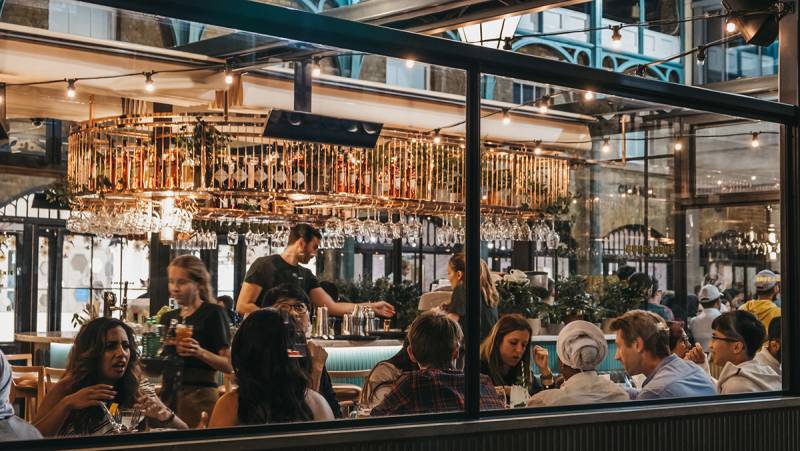A confusing sight has taken over my social feeds since the murder of George Floyd by a Minnesota police officer on Memorial Day: couched between posts memorializing Floyd, Breonna Taylor, Tony McDade, Ahmaud Arbery and Sean Reed, all recently killed by police, are crowdsourced lists of black-owned restaurants in Minneapolis, the Bay Area, Los Angeles and other cities. Vaguely framed as solidarity, food publications across the country have also taken up this enumeration in response to the continuous murder of black people in America that even a pandemic hasn’t managed to interrupt.

The absurdity of these lists is the suggestion that dining at a black-owned business in any way addresses the brutal and deadly force that police continue to unleash on black people. In a moment of national grief and anger, when yet another stranger’s name enters our vocabulary, and when another set of gruesome details leave our stomachs in knots, what relief does this transaction actually bring? At best, it scratches the itch of ego-driven guilt. Black people are left dead, their killers free, and the gulf between this most grave condition of American life and the woefully nominal response of patronage is too wide for me to bridge.
Scrolling past these lists, more robust with annotations and fact-checks by the day, I questioned if my imagination has failed to see their use. After all, the coronavirus pandemic has hit the restaurant industry especially hard, and most federal and local relief funding eludes small businesses and lands in the laps of food conglomerates. Even in less tenuous times, black chefs and restaurants face racial inequities articulated through the particular mechanisms of the food industry. The majority of black chefs are excised from the canon. Their press hits are limited to the month of February. Their recipes only inspire capital investment and praise when they land in white hands. They’re pigeonholed not just in what they should cook but how much they charge for it. So what harm is there in directing some dollars towards local, black-owned restaurants that need the support year-round?
The harm doesn’t live in those dollars. It lives in the framing of temporary patronage as a viable solution to an enduring problem—or worse, as salvation. The harm is the capitalistic impulse that has distorted tragedy to resemble Black Restaurant Week.
These are injustices that have never been settled with a tab and tip. The back-door white patrons of black-owned barbecue restaurants in the South during segregation, the civil rights era and the decades that followed come to mind. Writer and Southern Foodways Alliance founding director John T. Edge wrote about such patronage in 2010 and later discussed it on Jenna Wortham and Wesley Morris’s podcast Still Processing. Edge reiterated that white customers’ patronage was never an act of nobility nor an “elegant subversion” of Jim Crow. Rather, it is a more insidious transaction that maintains the racist power dynamics on which this country is built, relying on the labor of black folks feeding white people while black liberation is tempered by passive tolerance. As it turns out, paying money to enjoy good food doesn't require virtue. It simply satisfies hunger.
“What would America be like if we loved black people as much as we love black culture?” asked actress Amandla Stenberg in her 2015 video Don’t Cash Crop on My Cornrows. Stenberg made the video on the heels of Black Lives Matter marches following the police killings of Eric Garner, Tamir Rice and Akai Gurley among many others. America’s problem has never been loving the cultural production of black folks. Wise are we who know that sort of love has never saved us.
In a week of ongoing protests held under the stale threat of a pandemic and the sharp burn of tear gas, this new voracious appetite for black restaurants seems paltry and self-serving. And in the company of real, direct action—mutual aid, bailout funds, initiatives to decrease police departments’ budgets, calls for reparations—it’s wholly unimaginative and inadequate.
After cleaning a plate of food from a black-owned restaurant, I wonder, who leaves the table satisfied?
